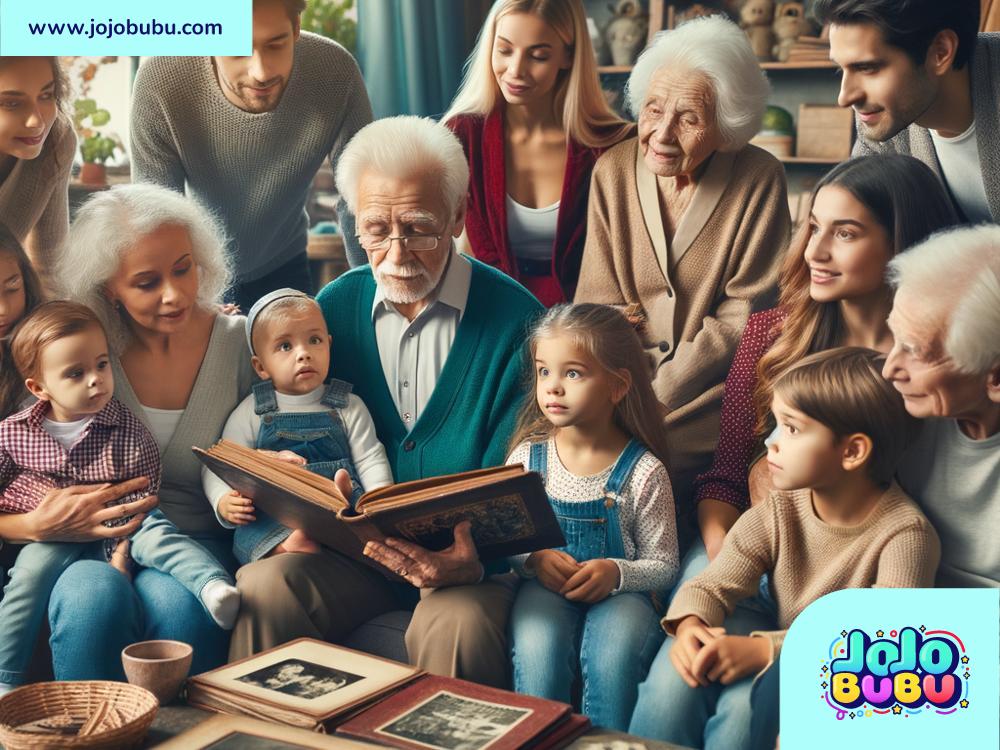Discovering Your Roots: The Importance of Family Heritage and History
Family heritage and history are like treasure chests full of stories, traditions, and lessons. When we learn about where we come from, we not only discover interesting facts about our ancestors but also find a deeper connection to our own identity. Discussing family heritage can be a fun and meaningful way to bring loved ones together, understand ourselves better, and preserve our culture for future generations.
Why Is Family Heritage Important?
Family heritage gives us answers to questions like, “Who am I?” and “Where do I come from?” It’s a way to understand our family's origins, traditions, and values. Knowing your heritage can also give you a sense of pride and belonging. For example, learning about your ancestors’ achievements or struggles can inspire you and make you feel connected to their strength and resilience.
Additionally, discussing family history can teach us important life lessons. Our ancestors faced challenges, overcame fears, and celebrated victories that paved the way for us. Their experiences might offer wisdom that we can apply to our own lives.
Lastly, exploring your family heritage can build stronger relationships. Sharing stories and memories creates opportunities to bond with relatives, whether they’re older family members with decades of experience or younger ones just beginning their journeys. It’s a chance to feel closer together and appreciate the unique role each person plays in your family’s story.
How to Start the Conversation About Family History
Discussing family heritage is easier than you think! You don’t need fancy tools or professional research to start — just curiosity and a willingness to listen. Here are some simple steps to begin exploring your family history:
-
Talk to Older Relatives
Start with grandparents, parents, aunts, uncles, or anyone who has lived through more history than you. Ask open-ended questions like, “Where did our family come from?”, “What traditions did you follow growing up?”, or “What’s the most interesting story about our ancestors?” Older relatives often love reminiscing, and their stories are valuable pieces of your family puzzle. -
Gather Old Photos and Documents
Family albums, letters, or certificates can reveal a lot about your ancestors. Take time to look through them and ask questions about the people in the pictures or the events mentioned in the documents. Even small details like hairstyles, clothes, or locations can show you how life has changed over time. -
Share Your Own Memories
Family history is not just about the past — it’s also about the present. Share your favorite childhood memories or traditions with your relatives. This keeps the conversation flowing and helps create a fuller picture of your family’s story. -
Create a Family Tree
A family tree is a visual representation of your ancestors and how everyone is connected. You can start with your immediate family and work backward, adding names, birthdates, and locations. It’s a rewarding project that makes it easier to see your heritage at a glance. -
Learn About Your Culture
Your family is connected to a culture, traditions, and sometimes even unique languages or practices. Read books, cook traditional foods, or celebrate festivals related to your heritage. This allows you to bring your family’s history to life and honor the legacy of your ancestors.
Fun Ways to Share Family Heritage
Once you’ve uncovered some interesting stories and facts, it’s time to share them with others! Here are a few creative and enjoyable ways to celebrate your family’s history:
-
Storytelling Nights: Host a family gathering where everyone shares one memorable story about your ancestors. It can be funny, emotional, or surprising — every story adds depth to your family’s history.
-
Recipe Sharing: Cook a traditional dish with your family and learn the story behind it. Food is an amazing way to connect with your heritage and pass down traditions.
-
Create a Scrapbook: Collect photos, letters, and other keepsakes to make a scrapbook of your family’s history. Include notes explaining the significance of each item — it’s like creating a time capsule for future generations.
-
Document Interviews: Record video or audio interviews with older relatives. Ask them to share their memories, advice, and knowledge about the family. These recordings can become precious keepsakes for your children and grandchildren.
-
Virtual Research Sessions: If your family’s history spans across countries, try using online genealogy websites or tools. Many resources today can help you track down information or even long-lost relatives.
Staying Connected to Your History
Discussing family heritage does not have to be a one-time activity. Keeping the conversation alive fosters a lifelong connection to your roots. Encourage your children and other younger relatives to ask questions and learn about their family's background. Pass down traditions, recipes, and stories so that they remain fresh and meaningful.
The more you know about your family’s history, the more you’ll realize the value of your heritage. It’s not just about dates or events — it’s about people and the unique journey they took to help shape the life you’re living today.
Conclusion
Talking about family heritage and history is a wonderful way to celebrate who we are and where we come from. It strengthens relationships, inspires gratitude, and connects us to the values and traditions of the past. Whether you’re sharing stories over dinner, creating a family tree, or cooking traditional recipes, every effort brings your family’s history closer to your heart.
So, why not start today? Open a photo album, call your grandparents, or gather around the table to share memories. The stories you’ll uncover may surprise you, make you laugh, or even bring tears to your eyes — but most importantly, they’ll help you appreciate the incredible journey of your family.

